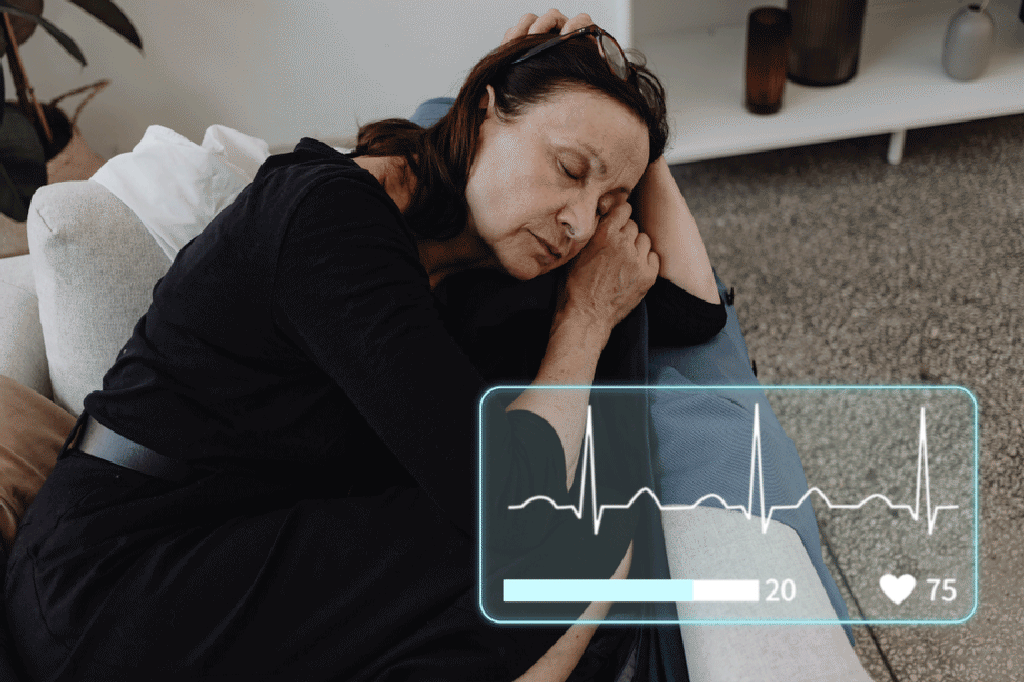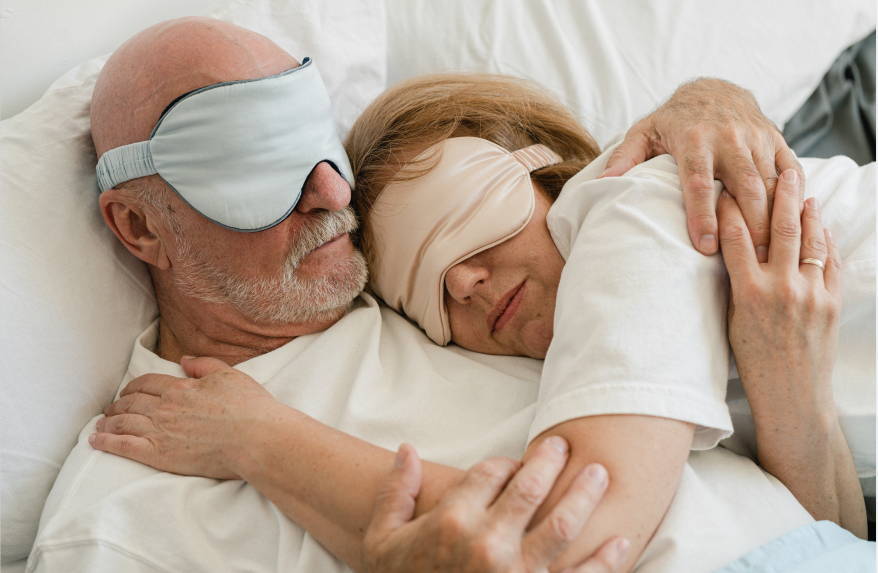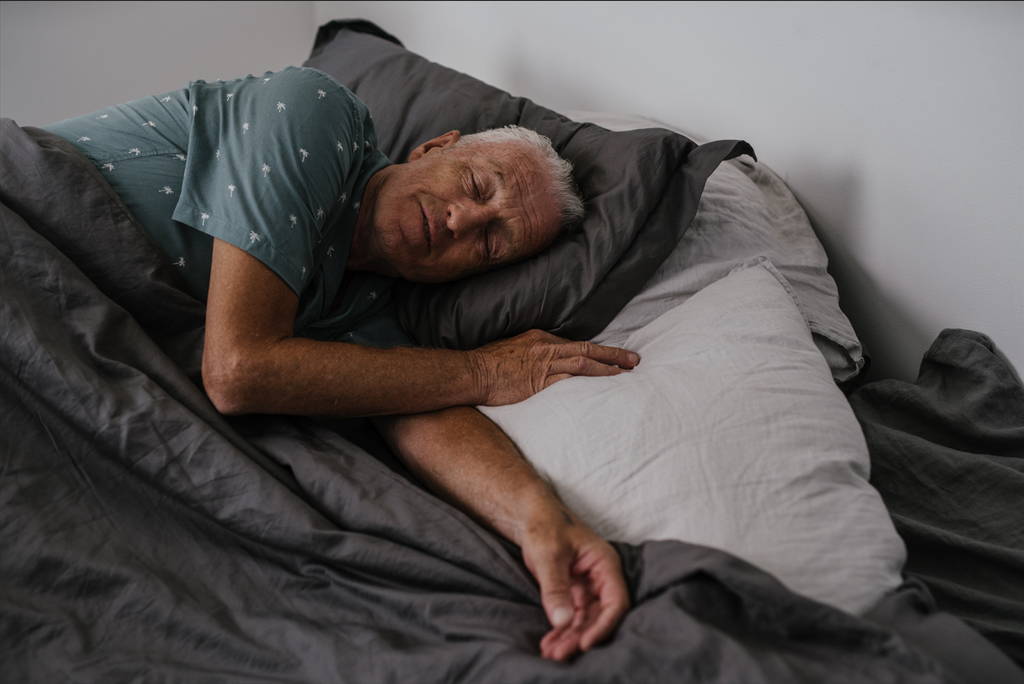Nocturnal heart rate, also known as overnight heart rate, is the number of heartbeats per minute (BPM) while you sleep. It can vary depending on different factors such as age, gender, lifestyle habits, and medications. In this blog post we will explore what is considered a normal nocturnal heart rate and how various factors can affect it. We will also look at how smoking, alcohol consumption, caffeine intake and night terrors influence nocturnal heart rates.
1. What Is the Average Sleeping Heart Rate?
The average sleeping heart rate in adults ranges from 40-60 BPM for young adults and 60-100 BPM for older adults. Variations in nocturnal heart rates can indicate certain health risks such as low or high blood pressure, arrhythmias or other cardiac diseases. It is important to be aware of your own resting heart rate to identify any potential health issues early on.
2. How Does Smoking Affect Sleeping Heart Rate?
Smoking has been shown to increase nocturnal heart rates due to the presence of nicotine which acts as a stimulant on the autonomic nervous system causing an increase in resting heart rate during sleep. Long-term effects of smoking during sleep can include increased risk of coronary artery disease and stroke, as well as decreased quality of sleep due to disturbed sleep cycles caused by nicotine’s stimulating properties.
3. What Is the Role of Alcohol Consumption in Sleeping Heart Rates?
Alcohol consumption before bedtime has been shown to lead to an increase in overnight heart rates due to its depressant effect on the central nervous system which increases sympathetic activity leading to higher resting heart rates during sleep. While there are some benefits associated with drinking alcohol before bedtime such as improved quality of sleep and relaxation, there are also potential risks associated with drinking too much including an increased risk for alcohol dependence and disrupted breathing patterns during sleep which can lead to long-term health issues if left untreated.
4. What is the Impact of Caffeine on Sleeping Heart Rates?
Caffeine has been shown to reduce overall duration of sleep and increase overnight heart rates due to its stimulant properties which act on both the central nervous system and autonomic nervous system leading to increased alertness and wakefulness throughout the night. Long-term effects from consuming caffeine at nighttime include an increased risk for insomnia due to reduced amounts of deep restorative REM (rapid eye movement) sleep leading not only physical exhaustion but also cognitive impairment over time if left unchecked.
What is the Impact of Night Terrors on Overnight Hearts Rate? Night terrors have been linked with higher overnight heart rates due to increased sympathetic activity during episodes which leads to elevated levels of adrenaline coursing through one’s veins resulting in a more active cardiovascular state than usual when asleep. If left untreated ,night terrors can lead not only physical exhaustion but also cognitive impairment over time if left unchecked.
5. Putting It All Together
In conclusion, it is important for all individuals regardless age or gender be aware that certain lifestyle habits such as smoking, alcohol consumption, and caffeine intake can significantly impact nocturnal heartbeat patterns. Individuals should strive for healthy sleeping patterns by avoiding unhealthy habits prior going bedtime, ensuring good quality restful nights sleeps free from disturbances such as night terrors. By doing so individuals may improve their overall physical health while reducing their risk for long term chronic diseases associated with poor sleeping patterns.
6. How to Do Oxygen Level Check
Knowing your oxygen levels is an important way to monitor your health, especially if you suffer from a lung condition or are recovering from an illness. Fortunately, there are multiple ways that you can check your oxygen level at home. For example, an oximeter that clips onto your fingertip is a convenient and non-invasive tool to use to quickly measure your oxygen saturation level. Another option is to consult with a doctor to perform a blood test since these results are usually more accurate than oximeters. Whichever method you choose, regularly checking your oxygen level can make sure that you are able to take proactive measures for keeping healthy.
7. How to Do Heart Rate Check
Checking your heart rate is a simple way to check the overall health of your cardiovascular system. Knowing your heart rate helps you monitor your body's individual fitness levels. The easiest and most accurate way to check your heart rate is by using a pulse oximeter or heart monitoring device that can be purchased at many drug stores or online. To use these devices, simply place the sensor over the point on your wrist where you feel a pulse and wait for the reading. You can also use a watch with a built-in heart rate monitor for measurements that are more accurate than counting manually. Once you know your heart rate, you can adjust lifestyle choices such as diet and exercise to ensure optimal health!
WRITTEN BY VIBEAT
Related Blogs
Recommended Products





